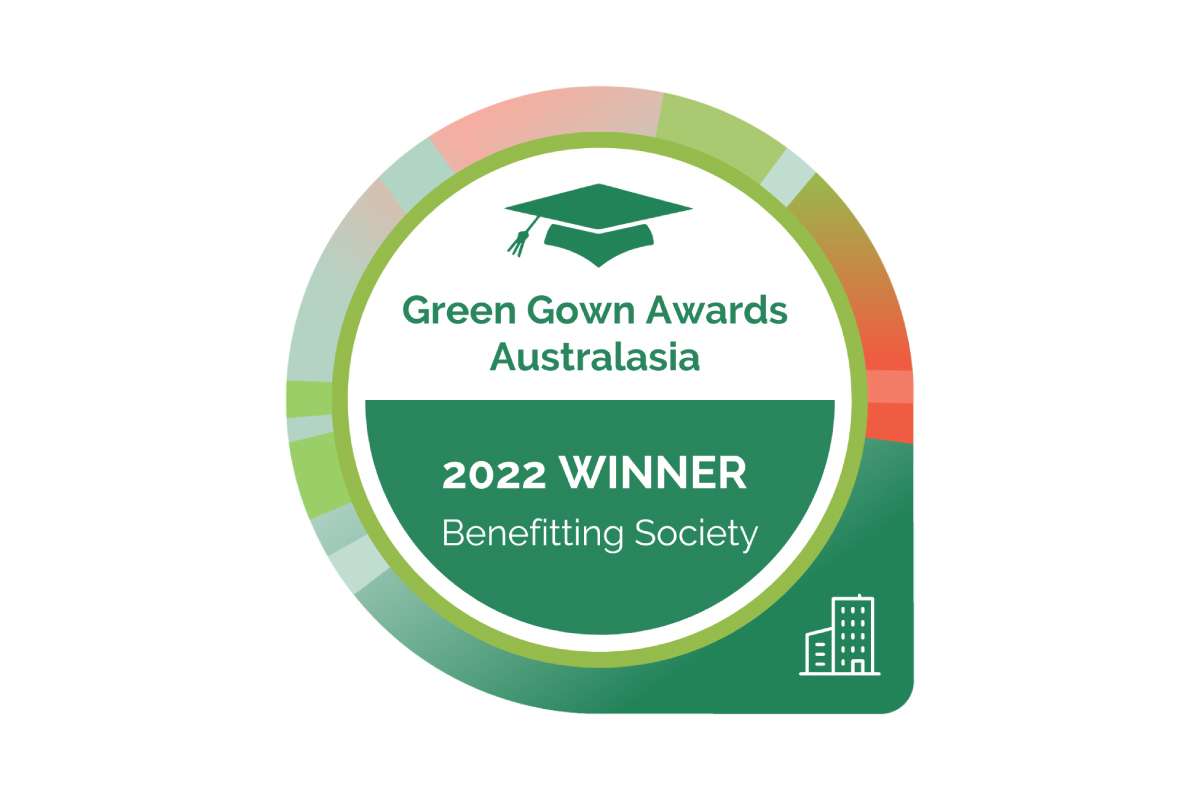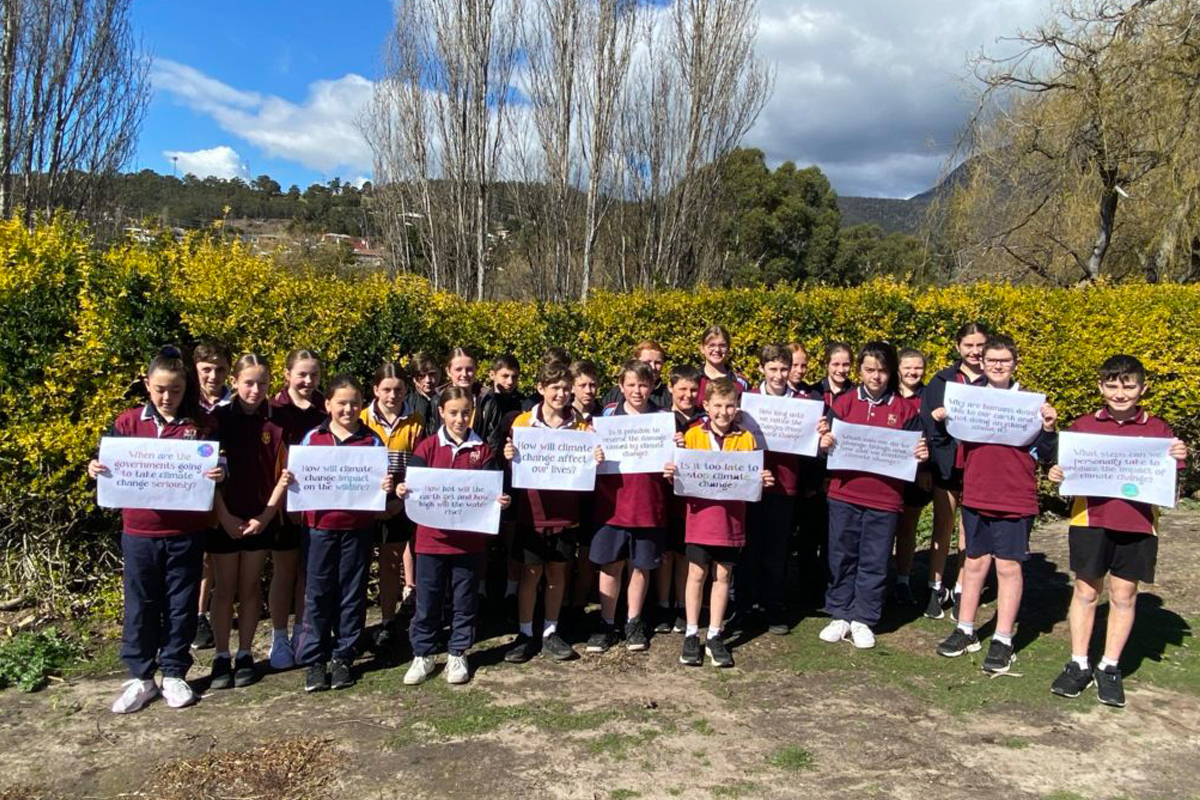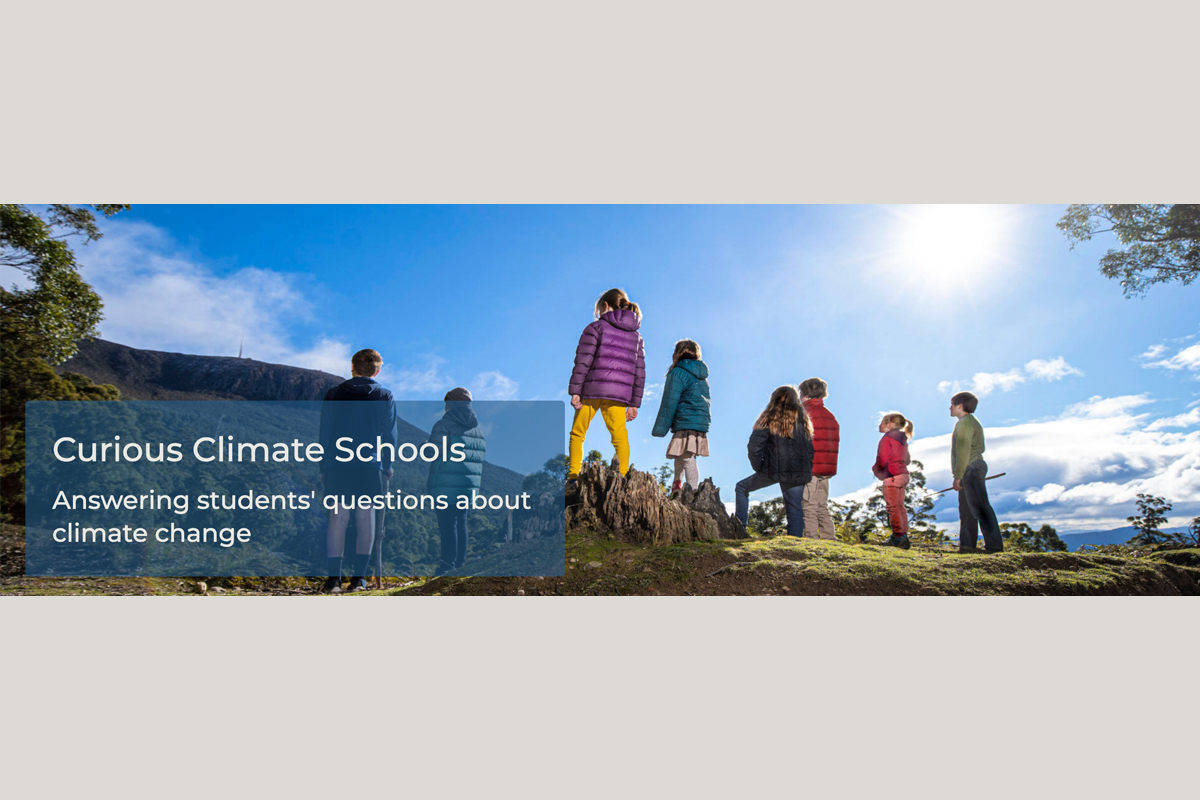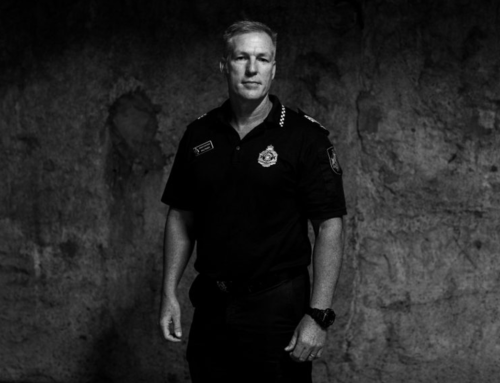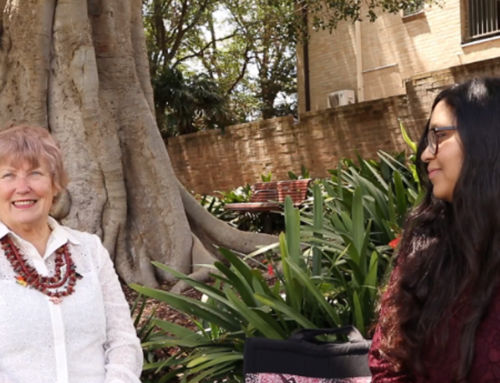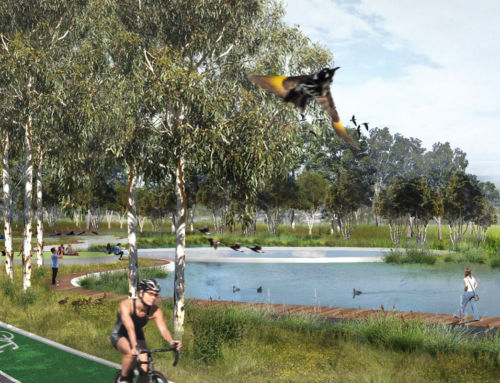
Curious Climate program: student and community-led conversations with scientists on climate change
Curious Climate Tasmania (CCT) delivers public-powered scientific engagement, bridging the gap between experts and audiences with credible, relevant information about climate change. CCT is different from most science communication projects in that content is driven by its participants. It asks the Tasmanian community what they want to know about climate change, and responds directly to their questions. Curious Climate Schools is a component of CCT that since 2020 has involved 1300 students aged 9-18. In 2021, classes worked together to send in 280 questions about climate change. CCT organised 57 experts to answer them – in video, webpage and in person. CCT is a collaborative project between the University of Tasmania-hosted Centre for Marine Socioecology, the Institute of Marine and Antarctic Studies, Tasmanian Institute of Agriculture, ABC, and the Commonwealth Scientific and Industrial Research Organisation. Many additional organisations from across the world provided access to an amazing group of experts.
> The initiative
Widespread climate literacy is essential for informed decision-making at every level of society. Examples from the literature evidence that climate literacy is a precursor to climate concern and action (Tobler, Visschers, & Siegrist, 2012). At an international level, the Paris Agreement (UN, 2015; Article 12) commits parties ‘to enhance climate change education, training, public awareness, public participation and public access to information’ (p. 16). However, Australia’s latest (2021) Nationally Determined Contributions update did not include reference to children or to climate change education as part of its ongoing commitment to the Agreement (Australian Government, 2021). While education for sustainability is a key component of Australian education policies, details on how climate change is specifically addressed by formal education are absent from these policies (UNESCO, 2015).
Recognising the climate literacy gap, Curious Climate Tasmania (CCT) was initiated in 2019 to deliver public-powered scientific engagement, bridging the gap between experts and audiences with credible, relevant information about climate change. There are many science communication projects, but the difference with CCT is that it flips the typical science communication model on its head by asking what the public wanted to know. These efforts also align to specific targets as set by the United Nations Sustainable Development Goals (SDGs), including 4.7 (Ensure that all learners acquire the knowledge and skills needed to promote sustainable development…) and 13.3 (Improve education, awareness-raising and human and institutional capacity on climate change mitigation, adaptation, impact reduction and early warning).
Building on evidence of the value of climate conversations, Curious Climate Tasmania invited local people (in Tasmania, Australia), through extensive dissemination by the local radio station, to submit questions on any aspect of climate change they were curious about. The project team then conducted a geographically specific thematic analysis of all submitted questions and collated teams of researchers to deliver answers to those most popular questions at four public presentations around the state (Kelly et al., 2020). The project was highly successful. A follow-up survey of 46 participants (conducted two years after the project ran) revealed that 82% of participants learned something new about climate change, 70% felt empowered to take climate action, and 81% shared the information they learned with family and friends. Based on this success, the project format was modified to engage specifically with school children on their climate questions and Curious Climate Schools was conceived.
Understanding that effective climate education approaches should emphasise climate action competence, not only climate knowledge (Vaughter, 2016)- directing students beyond critical thinking to critical action, by both learning to know and learning to do (Vaughter, 2016). Recent research has emphasised the importance of dialogue in teaching climate change and assisting young people to make sense of it (Rousell & Cutter-Mackenzie-Knowles, 2020). Conversations about climate change among young adults and with their teachers, friends, and family support their development of concern about climate change and adaptive climate change behaviour (Goldberg, van der Linden, Maibach, & Leiserowitz, 2019; Valdez, Peterson, & Stevenson, 2017).
The literature to date on climate change and education has primarily focused on knowledge and understanding of climate change science (Boon, 2009, 2010), effective learning strategies (Monroe, Plate, Oxarart, Bowers, & Chaves, 2019; Sezen-Barrie, Miller-Rushing, & Hufnagel, 2019), and educator experiences (Lombardi & Sinatra, 2012). This research suggests that effective climate education strategies include providing students with opportunities to interact with scientists – to address their climate understanding and discuss their opportunities to participate in climate action projects (Monroe et al., 2019). Accessible climate change education, where connections between people and climate change are made clear, can have a lasting impact on the everyday decisions that students make, and prompt them to consider how their decisions may impact climate change (Cordero, Centeno, & Todd, 2020).
Thus, we consider society-level climate literacy as the goal, and effective climate change education – beginning in schools – as a method for achieving this and supporting SDGs 4.7 and 13.3. So, building on the success of the initial year for the general public, CCT expanded in 2020 to pilot the Curious Climate Schools project, which then increased in scale in 2021 to include 36 schools and programs and over one thousand students. The program will run again in semester 2, 2022. Curious Climate Schools is an engagement and research project that aims to address children’s unanswered questions and concerns about climate change, given that climate literacy learning is not currently mandated in the Australian curriculum, and is rarely taught holistically in schools in Tasmania.
In Curious Climate Schools, teachers across Tasmania were invited to register their classes for the project and provided with guidelines to facilitate brainstorming sessions where each class formulated questions about any aspect of climate change. The local classes then voted on up to ten questions they most wanted to be answered and submitted these to the project website with their teachers’ assistance. A total of 280 student questions were submitted, of which 273 were ‘unique’ questions, in that they were only asked once using the same words. Many of the questions submitted were complex, and often included multiple sub-questions. The Curious Climate Schools team harnessed the collective knowledge of 57 experts from the University of Tasmania, Commonwealth Scientific and Industrial Research Organisation (CSIRO), and other research organisations, who volunteered to answer student questions. These experts included climate scientists, climate communicators, conservation biologists, fire scientists, chemists, lawyers, engineers, ecologists, psychologists, oceanographers, Indigenous knowledge holders, and health scientists. Each student question was answered, either in video or webpage format. The expert responses were reviewed by the project team to ensure that they were understandable and accessible for school-age children (e.g. addressed jargon or lengthy responses) and engaging images were added to text responses where relevant. The project and the Curious Climate Schools website (containing expert answers and other climate information) was launched at the beginning of the United Nations COP26 Climate Summit.
The expert responses to student questions were uploaded to the Curious Climate Schools website where they could (and still can) be explored by students and their teachers (as well as the wider public) in multiple ways:
- through a school class webpage – where classes could review answers to their own questions and see what other classes asked;
- through an interactive Google map – which identifies where each question came from;
- through a set of themed webpages – including most asked questions (and their responses), questions about looking ahead to the future, and questions on taking action and what needs to happen to limit or stop climate change, and what we can all do to help; and,
- by typing key terms or phrases into a search bar.
Finally, in addition to providing answers to student questions on the website, the project also coordinated expert visits to 33 classrooms (online and in person) across Tasmania. The purpose of these visits was not only for experts to answer student questions about climate change, but to also demonstrate how many different types of learning are involved in climate research, and to offer real-life examples of how different people are working to mitigate and adapt to climate change.
Curious Climate Tasmania is a collaborative project between the University of Tasmania-hosted Centre for Marine Socioecology (CMS), the Institute of Marine and Antarctic Studies (IMAS), and the Tasmanian Institute of Agriculture (TIA), ABC Radio, and the Commonwealth Scientific and Industrial Research Organisation (CSIRO). Many additional organisations from across Tasmania provided access to an amazing group of researchers and experts for the public events.
> Environmental and social benefits
Climate change will profoundly affect the lives of today’s children. Teaching them to be climate literate is fundamental to their future resilience and citizenship. However, climate literacy is missing from current education curricula in Australia. Curious Climate Schools is a research and engagement project that directly and personally addresses children’s unanswered questions and concerns about climate change. It connects school students (aged 9-18) across Tasmania, Australia with scientists working on all aspects of climate change. In 2021, we asked 1000 students what they most wanted to know about climate change. Fifty-seven scientists – including biologists, fire ecologists, lawyers, psychologists, and Indigenous knowledge holders – helped to answer students’ questions. The project empowered children by taking their concerns seriously, building their critical thinking skills, and ensuring they felt heard. All of these students’ questions, and scientists’ answers, are available on the Curious Climate Schools website. This is an amazing resource for teachers and students across Australia. The website also provides information for children and teachers on how to handle feelings about climate change, what people of all ages can do to be part of the solutions, and how young people’s questions are part of a larger global conversation about climate action, including work by the United Nations and the IPCC.
> Leadership and engagement
The current silence on climate in schools’ teaching is bad for children’s mental health. Research has established that speaking about climate change is an important first step in easing legitimate climate anxiety. Education that enables students’ agency through climate literacy could reduce the mental health burden on young people. Children deserve answers to their questions about climate change.
We need climate-literate young people. Empowering them to talk about climate change could both improve their mental health and help to build the engaged citizenry and leadership we need to face the climate crisis. Acknowledging that children have a stake in climate action and decision-making is vital. Without this, they feel disempowered and frustrated.
A key outcome of the Curious Climate Schools project is the climate literacy it supports, by providing a body of expert knowledge conveyed accessibly for school students in video, image, and short texts. Much of this information addresses questions with no straightforward – or ‘easily google-able’ answers. In addition, the project provides children with opportunities to see and meet experts working on climate change, and to connect more readily with the science. Thus, the project has capacity to give students agency over their own learning about climate change by connecting them personally with researchers working in diverse fields of climate research. Fostering this direct connection with researchers both validated student concerns and critical thinking, and inspired them with local role models who have dedicated their careers to this issue. The project involved students from different geographical areas facing varied climate risk and socio-economic challenges. By being able to see the questions of other classes across the state on the project website, students have also been able to recognise their shared concerns and consider a sense of solidarity towards action. For classes where climate change was a new topic of discussion, these peer questions may have opened new directions of thinking and exploration.
In the project, we felt it was crucial to recognise the climate impacts unfolding around the world, as well as the very real and personal impacts that learning about climate change can have. The timing of the project to coincide with COP26 in Glasgow in 2021 enabled Tasmanian students to make connections between their own questions and concerns and those being negotiated concurrently on the world stage. The resources we provided helped to situate a global issue that can sometimes feel abstract into their everyday lives. The learning material provided also helped students and teachers to navigate conversations about their emotional responses to climate change, something that is absent from school curricula. It also helped them to channel strong feelings into action at a local level.
Bringing together and applying five pedagogical principles to underpin the Curious Climate approach is unique and recognises the holistic nature of the climate change issue:
Student-led inquiry
Curious Climate Schools aims to respond directly to what students themselves say they want to know. This means that in facilitating brainstorming sessions, teachers are encouraged not to preempt questions in any way, to pose questions themselves, or to limit the types of questions students could ask. By enabling student-led inquiry, the project helped to build critical thinking skills, as well as empowering students by taking their concerns and questions seriously, and ensuring they feel heard.
Holistic approach to climate literacy
We see climate literacy as fundamental to good citizenship. Climate change is a wicked problem that involves profound changes to the environment and society. It is important to learn about all aspects of such change, and not to silo information into certain subjects or disciplines. This means students are free to ask about anything related to climate change, and are not limited to questions about scientific processes or impacts.
Acknowledging feelings
Climate change places a burden on all of us, including children. It is vital for mental health to acknowledge the feelings that this can generate. Talking about climate change, and getting support from others, is important and should be encouraged in schools. Curious Climate Schools provides psychology-informed resources for teachers and students dealing with, and sharing about climate feelings including anxiety and grief.
Empowering individual and system change
Children can be powerful actors and advocates for climate action. Curious Climate Schools helps students to think about what they can do to act on climate, in a way that celebrates the things they can do, acknowledges the structural changes necessary, and avoids judging individuals for the things that they don’t do. While acting on climate change can be individually and collectively motivating, and help assuage feelings of powerlessness and hopelessness, it is important not to place undue responsibility on individuals.
Being part of a global conversation
Curious Climate Schools creates connections – between students in a class, between classes across Tasmania, between children and experts, and between conversations happening in Tasmanian schools and those occurring at a global level. The project aims to show Tasmanian students that they can be part of a global movement for climate action and adaptation.
> Significance to the sector
Galvanising the research community, many of them within higher education, in a coordinated manner to provide at-scale direct communication with their communities, including students, with respect to climate change generally and specific areas (e.g., Tasmania, other Australian states, etc) provides a great model that can be emulated in many communities.
> Wider societal impact
Our activities are not just internally or sector-focused. UTAS exists for Tasmania and the world, as clearly stated in our University Strategy document. That is, all our endeavours are expected to deliver positive impacts. For example, sharing sustainability-related data and research with our broader communities has also led to impactful partnerships and addressing existing and emerging issues.
Knowledge about climate change is closely associated with climate concern among young people, and concern is a precursor to pro-environmental behaviours (K. Stevenson & Peterson, 2016). As researchers, the motivation for this project stemmed from the recognition that climate change is not systematically or holistically addressed in the Australian school system and that fundamental knowledge of climate change is crucial for all people – including young people – if we are to take the actions urgently required of us to mitigate and adapt to our changing climate. On a personal level, most of the project leads are also parents of children in this school system. We see our children’s worries about climate change at home and we know that, alongside the relative silences on climate change in the national curriculum, our children’s feelings about climate change are neither discussed nor addressed at school. Given the politicisation of climate change and its scant treatment in the current school curriculum, we were motivated to provide children with the opportunity to engage with interdisciplinary climate experts, and to access climate science knowledge firsthand. In doing this, we also aimed to address the holistic social context of climate change, including the mental health implications for young people.
> Learner/Graduate employer impact
Encouraging and supporting active community and student involvement in our collective sustainability journey, including formal programs such as Curious Climate Tasmania and Schools, embedding into community engagement and school curricula, research focus on critical issues such as climate enables informed future citizens. By listening and responding to community members and students builds their confidence as well as encourages critical thinking, research, and problem solving skills. The ability to respond critically to information provided and apply it in their lives is valuable for their personal development and shifting actions to be climate positive.

